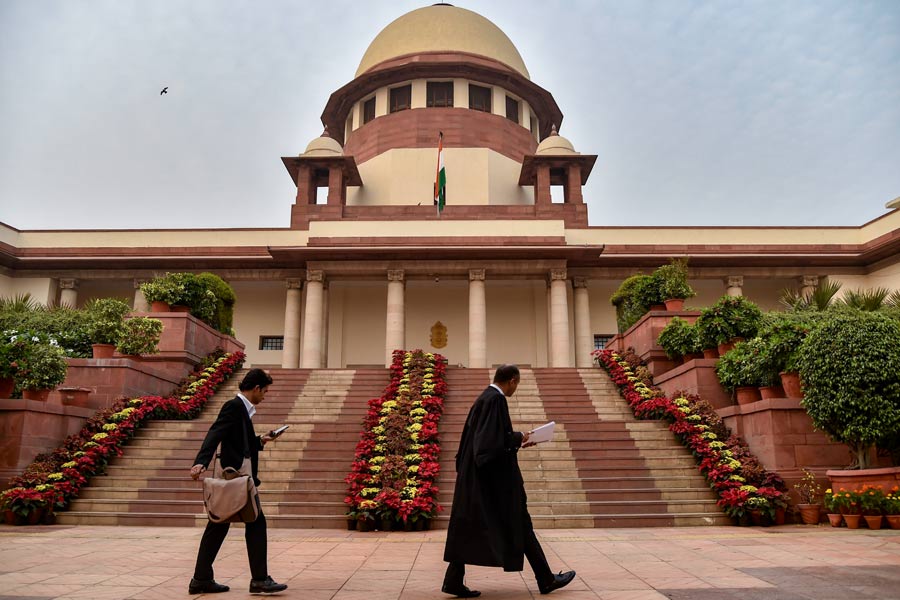The Supreme Court has ordered the Army to pay a compensation of Rs 50 lakh to a former personnel who was dismissed from service more than two decades ago following an incorrect diagnosis of AIDS by its doctors, saying he suffered mental trauma and social stigma while waging a protracted legal battle.
The court castigated the Army for its "apathetic attitude" towards Satyanand Singh, 50, a havildar, who was terminated in 2001.
Singh was inducted into the force on October 30, 1993 and was declared HIV positive six years later. He was dismissed when he was just 27.
Living with mental agony, loss of employment, social stigma and the fear of imminent death, Singh fought his case on all possible legal forums, including the Armed Forces Tribunal, high court and the Supreme Court.
The court said having considered Singh's plight, which his employer failed to address, and the fact that his reinstatement in service was not an available option now, and taking into account the "psychological, financial and physical trauma" he suffered, it deemed it fit to award him monetary compensation.
“In view of the extreme mental agony thus undergone by the appellant, in not only facing the apathetic attitude of the respondents 2 to 4 but in facing the concomitant social stigma and the looming large death scare that accompanied such a discharge from the armed forces, we deem it fit to award a lump sum compensation of Rs 50 lakh towards compensation on account of wrongful termination of services, leave encashment dues, non-reimbursement of medical expenses and the social stigma faced....to the appellant within eight weeks from the date of this judgment without fail,” the bench said.
The bench, comprising justices Sanjiv Khanna and Dipankar Datta, said on Wednesday that Singh will, additionally, be entitled to pension he would have got if he had continued in service.
“We make it clear that since the appellant had not continued in service beyond December 26, 2001 and there was no occasion to assess his performance for securing a promotion, he shall not be entitled to raise any plea in relation thereto,” it said.
However, in computing the quantum of pension, the Army shall take into account allowances, increments that Singh would have been entitled to, had he continued in service till the date of his retirement as Havildar, it said.
It said the man was “robbed of the opportunity of further serving the nation” on account of the most unfortunate turn of events and the responsibility can lie on “no shoulders other than the respondents 2 to 4 (Army and its authorities)”.
“The apathetic attitude of the respondents to the appellant’s plight is evident in the repeated submission that has been made before all fora, i.e., the appellant’s case had been re-examined several times and thus did not merit another look...” it said.
The severance of the employer–employee relationship can never be said to be an easy choice, for it not only results in the employee losing his livelihood, but also affects those who depend on him for their survival, it said.
“The appellant, who was trained to live a disciplined life from the tender age of 19, was unnecessarily and without cogent reason thrust into civilian life with little warning or preparation. The psychological trauma that such displacement can bring about needs no elaboration. However, the cruel passage of time has unfortunately rendered the appellant’s original hopes of reinstatement an unrealised dream,” it said.
Except for the headline, this story has not been edited by The Telegraph Online staff and has been published from a syndicated feed.











